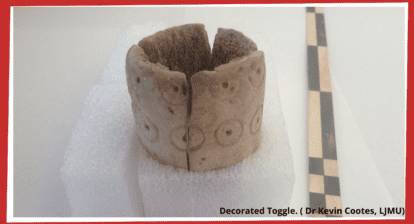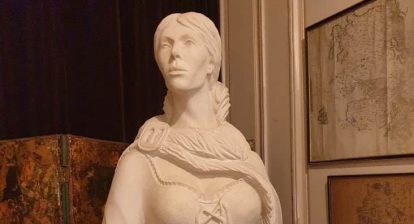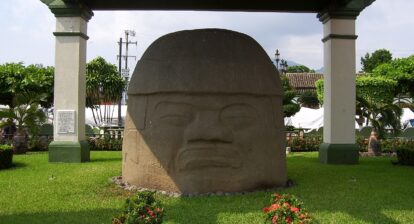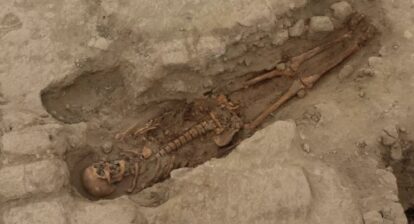Video celebrating 250 years of Beethoven
Blogpost/Transcript
A German composer and pianist, Ludwig van Beethoven’s compositions are among the most performed classical music in the world. We don’t know his exact date of birth, only that he was born in Bonn, Germany in a house now known as Beethoven House Museum. The date of his baptism is December 17, 1770 and this gives us an indication because it was a general custom at that time to baptize children within 24 hours of birth. This year (2020) makes it the 250th anniversary of his birth, which is why this is as good a time as any to celebrate him.
He learned music initially from his father Johann Beethoven and later from other teachers, who taught him piano and violin. His music instruction by his father was extremely harsh and intensive, often reducing him to tears. One of his teachers Tobias Friedrich Pfeiffer was an insomniac and would drag the young Beethoven out of bed to learn the keyboard. His father wanted to promote him as a child prodigy and claimed that Ludwig was six on posters of his first public performance (he was seven).
Beethoven’s most important teacher was Christian Gottlob Neefe with whom he began his music instruction in 1780 or 1781. He wrote his first three piano sonatas in 1782 and 1783 at the age of 11 and 12. The Elector of Bonn, Maximillian Franz supported him and appointed him court organist. There is no record of his activities as a composer during 1785 to 1790 probably because of his home environment. His mother died in 1787 and in 1789, his father was forcibly retired from the service of the Court, due to alcoholism. Beethoven contributed to the family income by teaching music, which he hated, and by playing the viola in the court orchestra. During this time, he was introduced to the works of famous musicians such as Mozart and Haydn and probably met both of them during his travels. Beethoven left for Vienna in 1792 to study with Haydn, where he studied the works of the recently deceased Mozart. His compositions at this time have a distinct Mozartian flavor.
Bonn fell to France at this time and Beethoven stayed in Vienna where he was supported by a number of noblemen. By 1793, although he gained a reputation as a piano virtuoso he withheld his works from publication so that they would have a greater impact when he eventually did release them. He published his first compositions after his first Viennese performance in 1795. From then on he continued to publish more and more. With the premiers of his First and Second symphonies in 1800 and 1803 his reputation as one of the most important of a generation of young composers, after Mozart and Haydn, solidified.
Beethoven’s own distinctive style set him apart from the masters as well as his contemporaries and he began to see huge financial success from his concerts. His brother started managing his affairs, negotiating higher prices for compositions and selling his unpublished works.
What set Beethoven apart from all the other masters was that from 1802 onward he started losing his hearing, which he attributed to a fit because of a fight with a singer in 1798. He moved to a small Austrian town just outside Vienna, on his doctor’s advice from April to October 1802, to come to terms with his condition. His letters and other documents from this time, discovered after his death, reveal his thoughts of suicide due to his deafness but also point to his resolution to continue living for and through his art. In 1806, he wrote on one of his musical sketches: “Let your deafness no longer be a secret - even in art.”
Beethoven’s loss of hearing did not prevent him from composing music but it made it very difficult for him to play at concerts and it contributed to his social withdrawal. After his return to Vienna, he changed his music style, showcased in his Third Symphony originally called Bonaparte because he had dedicated it to Napoleon. He scratched out Napoleon’s name from the manuscript after he declared himself Emperor of France. Because it diverged from Beethoven’s earlier style, it received a mixed reaction; some considered it a masterpiece while others objected to its length. During this period, known as the “heroic period”, he wrote symphonies fourth through eighth, the Violin Concerto (one of the best-known violin concertos), as well as his only opera Fidelio.
Beethoven’s income during this time came from publishing his works, from performances, and stipends from his patrons, for whom he gave private performances and copies of works they commissioned for an exclusive period prior to their publication. His most important patron was Archduke Rudolf of Austria, who studied piano with him and the two remained friends. The shadow of war hung over Vienna in 1809 and Beethoven’s work during this period shows this. He left Vienna with the royal family, prompting a number of works to mark the occasion of their departure and eventual return.
The occupation of Vienna and his failing health are the reasons for his low output during this time but he continued to write some notable works. At the end of 1809, Beethoven wrote music for Goethe’s poem Egmont and he further set three of his poems as songs. He admired Goethe and his work, writing: “The admiration, the love and esteem which already in my youth I cherished for the one and only immortal Goethe have persisted.”
Beethoven’s health deteriorated in 1811 and he moved to the spa of Teplitz (now in Czech Republic), where in 1812 he wrote a ten-page love letter to his “Immortal Beloved”. No one knows who this is; there are speculations that it could be Antonie Brentano, an art patron and one of his close friends. Another candidate is Therese Malfatti, his doctor’s niece, to whom he had proposed when he was forty and she nineteen. She rejected the proposal and it is thought that another one of his famous compositions, Fur Elise, was written for her. It is one of his most popular compositions, never published during his lifetime and discovered 40 years after his death.
From 1813 onward health, family issues and war affected his work although he did revive his compositions after Napoleon’s defeat and regained his popularity. His last solo performance was in April-May 1814. Apparently, the piano was out of tune during this performance but he did not hear it. By 1818, he had to use notebooks for conversations because his hearing had deteriorated so much, although he never lost complete use of his ears and could hear loud noises. He continued writing notable works however, including the Diabelli Variations and Missa Solemnis, as well as the Ninth Symphony, which he composed between 1822 and 1824, regarded by many as his greatest work and a supreme achievement in the history of western music. He completed his final composition in November 1825, when he was already ill and depressed. His condition became severe in December 1826 and Beethoven died on March 26, 1827. His autopsy revealed severe liver damage due to alcohol consumption. An estimated 10,000 people attended his funeral procession.
Goethe said of him: “His talent amazed me; unfortunately he is an utterly untamed personality, who is not altogether wrong in holding the world to be detestable, but surely does not make it any more enjoyable … by his attitude.”
Title music: Hovering Thoughts by Spence (Youtube Music Archive)
Symphony No. 5: Conductor: Simon SchindlerEnsemble: Fulda Symphonic Orchestra, (Open Audio License version 1)
Fur Elise: Public Domain (Creative Commons CC0 1.0 Universal Public Domain Dedication)
Symphony No. 9 Anthem of Europe: US Navy Instrumental (Public Domain)
Featured Image: Beethoven 1820 By Joseph Karl Stieler (Public Domain)
Final Image: Beethoven in 1803 By Christian Horneman (Public Domain)
I hope you enjoy the show. You can subscribe to the You Tube Channel for more on science, history and nature. Please do check out the website, follow on social media Twitter // Instagram // Facebook // Reddit // Tiktok and check out the audio podcast on Apple Podcasts // Stitcher // TuneIn // Spotify






